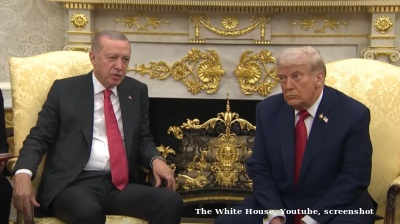Former Malawian President Peter Mutharika, now 85 years old, sealed his return to power on September 24 after securing 57% in the first round of the September 16 vote against the 33% garnered by the incumbent, Lazarus Chakwera, who conceded hours before the official results were released.
“This outcome is a reflection of your collective will to have a change of government, and so it is only right that I concede defeat out of respect for your will as citizens and out of respect for the constitution,” Chakwera said in an address to Malawians, as quoted by AP.
The Malawi Electoral Commission chair said that president-elect Mutharika, who governed the southern African nation from 2014 to 2020 when he lost to Chakwera in a runoff, won more than 3mn votes this time, while the incumbent garnered 1.7mn votes. About 5.5mn of the 7.2mn registered voters cast their ballots, representing a 76.4% turnout.
“What binds us together as Malawians is stronger than what separates us into political parties, Annabel Mtalimanja said, as quoted by the Nyasa Times on September 25, urging voters to accept the results and maintain peace. “Let us work together to give our future generations a better, stronger, and prosperous Malawi.”
The poll comes amid a severe economic crisis, foreign currency and fuel shortages, and high inflation. The near-term growth outlook is weak, inflation is high but edging down, and the currency is under strain. A credible reform/reset—FX liberalisation, fiscal repair, and IMF re-anchoring—could stabilise macro conditions into 2026; without it, stagflationary drift and recurrent food/FX crises are the base case.
A total of 17 candidates were in the running, including a second former president. But analysts consistently saw the contest as a two-horse race between Chakwera and his predecessor Mutharika, who also faced off in elections in 2014, 2019 and 2020.
Mutharika, a law professor, will be sworn in within 30 days of the declaration of the result. In 2019, he was declared the winner, but Malawi's top court annulled the result after an appeal by Chakwera, an evangelical preacher, who cited alleged massive irregularities. He lost the re-run that was held a year later.
However, Malawi's economy struggled under Chakwera, with inflation approaching 30% and the cost of living skyrocketing. A shortage of foreign currency curtailed the country's capacity to import fuel. As a result, long queues were the order of the day at gas stations over the past five years.
The situation is aggravated by structural shocks. The 2024/25 El Niño left around 5.7mn people in acute food insecurity, forcing large maize import needs that will weigh on reserves. At the same time, persistent power shortages and rolling load-shedding continue to erode productivity and deter investment, leaving businesses exposed to higher costs and supply disruptions.
Analysts told Nyasa Times that the election was a referendum against Chakwera's poor handling of the economy, with Mutharika capitalising.
“This election was less about Mutharika but more of a referendum against Chakwera,” said local university lecturer Boniface Dulani.
“Malawians have shifted to Mutharika because he is a known quantity, and many hope he can at least restore stability. But the real story is that Chakwera failed, and voters punished him.”
Ernest Thindwa, another political analyst, noted: “The economy is the only campaign message that does not require a messenger—it is felt in every household.”
Malawi, which won its independence in 1964, was ruled for 30 years by the autocratic Hastings Banda until 1994. Since then, it has held multiple competitive elections and experienced peaceful transfers of power.
Despite overall competitiveness, observers and civil society flagged inequities in campaign financing, media access, and institutional capacity. Some parties have stronger reach or access to state resources, which can tilt the playing field, the European Union Election Observation Mission (EU EOM) noted.
In separate releases on September 24, the Southern African Development Community (SADC) and African Union (AU) congratulated Malawians for a peaceful vote.
SADC said it extended its “profound gratitude to the Malawi nation for her people’s tolerance of divergent political views and democratic maturity, and urges all stakeholders to remain true to these attributes beyond the release of the final results,” and looks forward to a smooth transition.
The AU hailed Chakwera for conceding defeat and commended “all the people of Malawi for their enthusiastic, peaceful, and orderly engagement in this credible democratic process across the election cycle.”
News

Trump lavishes praise on Erdogan in White House meeting and suggests Turkey stop buying Russian oil and gas
Some big military and civilian aircraft deals may be in the making, but the deal-making remains behind closed doors.

Kyrgyzstan to hold early parliamentary elections
Leaders likely looking for more stability in already sedate political environment.

Zimbabwe aims to expand dollar-denominated VFEX into financial centre, says CEO
VFEX could serve as the anchor for a future international financial services centre in Victoria Falls, modelled loosely on hubs such as Mauritius or Botswana’s IFSC.




